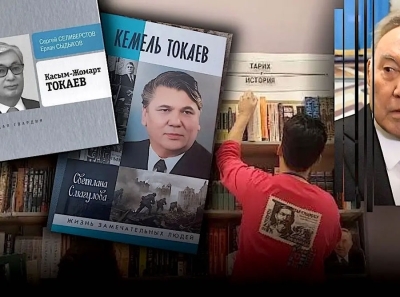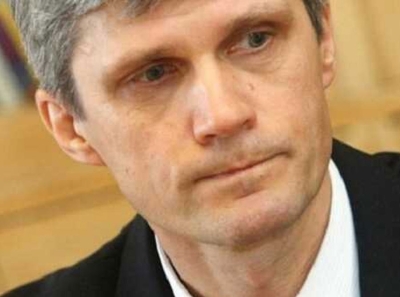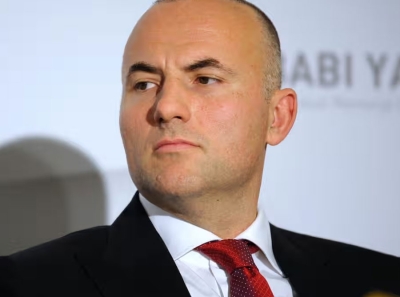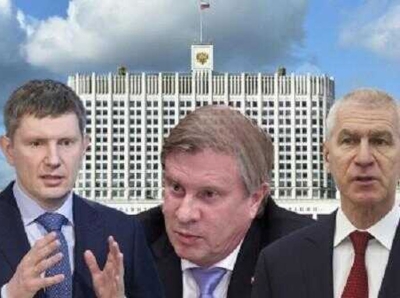Will support for Ukraine crumble after Slovakia’s election?
Ex-Prime Minister Robert Fico has emerged the clear winner of Slovakia’s parliamentary election. His left-wing nationalist Smer party won 22.9 percent of the vote, followed by the liberal Progresívné Slovensko with 18 percent. He will, however, need coalition partners to form a government. Commentators wonder whether Fico will follow up on his harsh rhetoric in the election campaign.
Hope for pragmatic politics
The election winner is unlikely to block further Western support for Kyiv for the time being, The Irish Times believes:
“In power in the past Fico proved somewhat more pragmatic and sympathetic to fellow EU leaders than his election rhetoric suggests. He will certainly have to be mindful of the need to maintain support for badly needed EU funding to the country’s indebted economy. His campaign slogan ‘Not a single round’ for Ukraine came after Slovakia, previously a staunch supporter of Ukraine, had already supplied most of the arms it can spare to Kiev.”
Two tables for two for the Visegrád Four
The election result is bad news for Ukraine, Seznam Zprávy fears:
“On the western border of the war-torn country, a government is coming to power from which, instead of principled democratic positions, one can expect at best immoral manoeuvres and at worst even more immoral pro-Russian appeasement. The fact that Slovakia’s international influence is not so great that it could automatically weaken the Western alliance is scant consolation. As far as Ukraine is concerned, Prime Minister Fico’s rhetoric will probably be no different from that of Viktor Orbán. The Czech Republic, Poland — Hungary, Slovakia. Set up two tables for two for the next meeting of the Visegrád Four.”
Support for Kyiv could wobble
Fico’s election victory adds to the EU’s worries, NRC comments:
“Fico also talked big in his previous terms in office, analysts say, but ultimately adopted a pragmatic stance in Brussels and avoided unnecessary confrontations. ... But support from Orbán and possibly other nationalist leaders could now embolden him. There are elections in Poland on 15 October, and if the ruling PiS party wins there again, the populist, anti-liberal trend in Central Europe could intensify and further undermine the rule of law in the region. This could have serious consequences for the European Union’s common foreign policy on Ukraine and weaken support for Kyiv.”
Overcome division and tackle challenges
Divided Slovakia needs dialogue now, Pravda appeals:
“Perhaps the most important task for the new government is to build bridges and reconcile a divided society. ... Slovakia is facing difficult times and great challenges. The unfavourable economic situation, the ongoing Russian aggression, the green transformation, the transition from European assembly plant to innovation tiger, an insufficiently functioning democracy. ... All this is just the tip of the iceberg of the challenges we must overcome together. But without dialogue, understanding and cooperation we won’t get very far.”
No big surprise
Even after these elections Slovakia will hardly become a second Hungary, political scientist Taras Zahorodniy stresses on Facebook:
“I see that the election results in Slovakia came as a big surprise for most people. But in reality nothing extraordinary happened. Russia’s influence on this country was already quite substantial. Gazprom, for example, has controlled the local gas transmission system since the 1990s. Many incumbent Slovak politicians are graduates of Moscow universities. That’s enough given how small the country is. When Slovakia actively helped Ukraine after 24 February, it was an exception, not the rule.”
Unscrupulous chameleon
Népszava has doubts about whether Fico intends to make good on his promises:
“The secret of Fico’s success is that he is a chameleon and has no scruples. For years he has promised things that voters wanted but that no major party was willing to take on: opposition to vaccinations during pandemics, a ‘Hungarian’ solution to the wave of migration, closed borders, ‘peace’ in the face of war. ... But it is questionable whether Fico wants to implement all that he has promised.”









